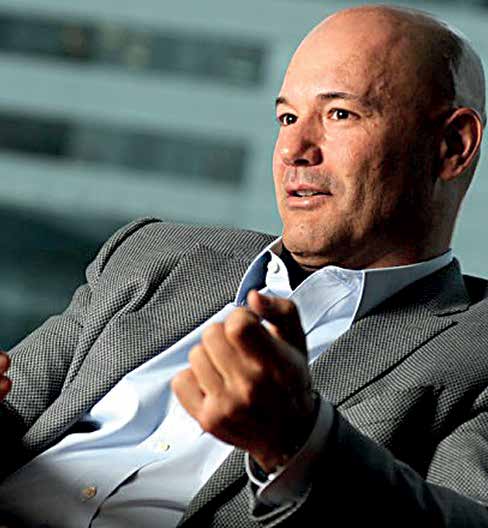Emerging Challenges in Brazil’s Agricultural Sector
In a recent statement that has stirred discussions within Brazil’s agribusiness circles, Paulo Sousa, the CEO of Cargill’s operations in Brazil, highlighted a growing concern that could potentially ripple through the nation’s economy. During an event in Sao Paulo, which aimed to dissect the plethora of challenges and opportunities facing agribusiness firms in the country, Sousa brought attention to an alarming trend: a significant uptick in bankruptcy filings among farmers. This trend not only threatens the stability of Brazil’s agricultural sector but also poses risks to the global food supply chain, given Brazil’s status as a leading exporter of soybeans, sugar, and other essential food commodities.
The Legal Novelties of Bankruptcy Filings
Sousa pointed out the legal complexities associated with the wave of bankruptcy filings, labeling it as a “legal novelty” that brings considerable worry to the sector. The intricacies of these legal proceedings can often prolong the resolution of financial distress, further exacerbating the challenges faced by the agribusiness community. The concern is not only about the immediate impact on the farmers and their operations but also on the broader implications for creditors, suppliers, and the global markets that rely on Brazil’s agricultural exports.
Impacts on Grain Exportation and Global Supply Chains
The rise in bankruptcy cases among farmers is not an isolated problem. It directly impacts the operational efficiency of grain traders and exporters, including behemoths like Cargill. An important aspect of this issue, as highlighted by the grain exporters’ lobby Anec last month, is the potential disruption to the delivery of committed grains. This disruption could, in turn, hinder traders’ abilities to fulfill their export programs, thereby affecting global supply chains.
Brazil’s role as a top exporter of key commodities places it at the heart of the global agricultural market. Any significant disruption in its export capabilities can lead to fluctuations in global prices, affecting food markets worldwide. This makes the issue of farmer bankruptcies not just a national concern but a global one, with potential implications for food security and international trade dynamics.
The Vocal Concerns of Brazilian Traders
The issue of rising farmer bankruptcies has seen increasing vocalization from Brazilian traders. This group, directly impacted by the disruptions, has been at the forefront of raising awareness about the potential long-term effects on Brazil’s agricultural output and export performance. Their concerns highlight a critical need for strategic interventions and support mechanisms to address the financial distress within the farming community, ensuring the continuity of Brazil’s agricultural exports.
Navigating Through the Challenges
The growing concern over farmer bankruptcies in Brazil calls for a concerted effort from all stakeholders, including the government, financial institutions, agribusiness firms, and the farming community itself. Developing robust support systems, offering financial advisories, and creating more flexible credit facilities could be part of a multifaceted approach to mitigate the risks associated with financial distress in the farming sector.
Moreover, enhancing legal frameworks to address the complexities of bankruptcy filings more efficiently could provide quicker resolutions for distressed farmers, ensuring minimal disruption to the agricultural supply chain. Collaborative efforts to introduce technological innovations and improve market access for small to medium-sized farmers could also play a crucial role in stabilizing the sector.
Conclusion: A Call for Strategic Action
The concerns raised by Paulo Sousa, reflecting on the growing wave of farmer bankruptcies in Brazil, underscore a critical challenge facing the nation’s agricultural sector. As Brazil continues to play a pivotal role in the global food supply chain, addressing these challenges becomes paramount. It requires strategic thinking, policy reforms, and collaborative efforts to ensure the sustainability of Brazil’s agricultural output and its contribution to the global market. The situation calls for immediate attention and action to safeguard the interests of farmers, traders, and global consumers alike.
Related: The Future of Protein by Cargill
